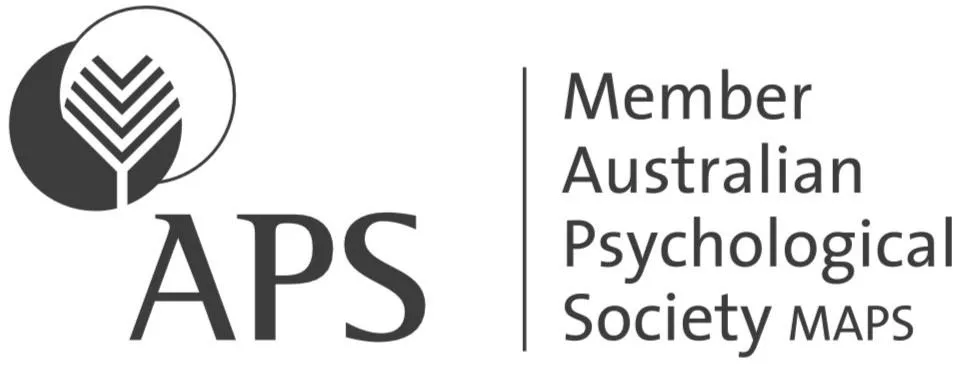Book a session with Suan
Please choose a date and time below that suits you for your appointment.
After receiving your payment you will be sent an email with the Zoom link and a receipt.

Susan Crain
Separation and Divorce Coach
Parent Assist Coach
With a background in law, psychology and coaching, Susan is well equipped to personally and practically support, coach and empower her clients, all the way through the separation and divorce process and beyond. Susan has clients all over Australia and New Zealand, including many rural Australia regions, and her sessions are largely run via Zoom to ensure easier access for her clients.
Susan provides parent assist coaching to help parents deal with the various challenges of parenting children. As a mother of three and part time foster carer of a young child with ADHD, Susan knows first hand some of the hurdles parents can face and is very experienced in working with parents facing additional family challenges through separation and divorce.
Testimonial: "I would not have the relationship I have with my son today if I hadn't got Susan's help. My son and I also attended the Konnection workshops which were a significant step in helping us heal and reconnect after the divorce. I thought I had lost him but today we are going strong." Nathan W
Susan's work with her clients as a life coach, helps per clients build a vision for their future and works with them to create and stay accountable to their step-by-step plan to realise their value, vision and opportunities. Her very popular Kare workshops offer women wonderful care, guidance, education, confidence, inclusion, health and wellbeing support and career advisory assistance.
Testimonial: "Susan helped me through the worst stage of my life. I felt broken. I look back now and can't believe how far I have come. I cannot thank you enough." Ros B
For further information on any of these workshops please email us at:
Or sign up through this website to receive our monthly newsletter for information on upcoming online or in person workshop opportunities.

Sherry is a registered psychologist, educator and mother of three who is passionately dedicated to uplifting the mental health and well-being of her clients at every stage of life. She excels at helping you develop an effective tool kit of strategies and coping skills, to help you through your life challenges, improve your communication skills and enhance family relationships.
Sherry specialises in:
*Child anxiety, building resilience, emotional regulation
*Teens & Adult support
*Family Relationships
*Parenting help
*Peri/Menopause support
*Peri and Post Natal support
*Grief/Loss

Susan is a lawyer who majored in psychology, counselling and coaching. She has worked for over 30 years with clients who are considering whether to stay or go, have already separated or are now divorced, to support and empower them to consider all the options and develop a plan going forward, which best supports their emotional, parenting, financial and post divorce needs.
Susan Specialises in:
*Separation & Divorce Counselling and Coaching
* Co-parenting support
*'Konnect' Programs
Questions about our online
Counselling or Coaching Services?
Medicare rebate or private medical insurance claim for psychological services?
Most clients prefer to book directly with with our counsellors. No referral is required to access this counselling service.
During the first session, you can discuss the benefits of seeking a Mental Health Care Plan from your GP should you wish to pursue this path moving forward and you are booking with a registered psychologist. If you require a Mental Health Care Plan (MHCP) you will need to make a long appointment with your GP and they will make an assessment about whether you are eligible.
All of our registered psychologists are registered with Medicare and you will need a referral from a GP if you wish to claim Medicare rebates. Under the Better Access program you can receive a partial rebate for up to 10 individual sessions in a calendar year.
All our psychologists are registered with private health insurance providers in Australia. If you have private health insurance, you may be eligible to claim rebates for psychological sessions. The level of cover and any applicable waiting periods vary between providers and depends on your extras cover policy.
To find out if you are eligible and/or how much funding you are entitled to claim for psychological sessions, please contact your private health insurance.
Where applicable, some of our psychologists also see clients who are self-managed or plan-managed through NDIS at the current rate for NDIS.
Cancellation or missed sessions policy
Given the nature of our support services, last minute cancellations are costly, and it means that other clients may miss out on receiving the required support. For cancellations within 48 hours of the scheduled appointment there is a $65 part fee payment. For less than 24 hours cancellation notice or a non-show, the full session fee will need to be charged. These fees are refunded however if the session can be filled at the last minute.
How are your counselling and coaching sessions held?
We know our clients are time poor. For your convenience, all our counselling or coaching sessions are now available online via Zoom.
You can book your appointment online via this website.
Zoom allows us to connect with you via video and audio. It just requires you to click on a link to join. You can sign up to Zoom to create a FREE account and download the Zoom Client for Meetings. Zoom does require internet connections.
After you book you will be sent a reminder about the booking and emailed a link to connect at the booked time. You are also likely to be sent a client information form to complete prior to your initial consultation to enable our Counsellors and Coaches to be better prepared for your first meeting.
If you are unable to make any of the dates available, please email us to see if we can accommodate an alternate time for you: [email protected]
If you live in Brisbane or the Gold Coast, Queensland, we are available for face to face consultations. Please email us at [email protected] if you would like to arrange an in person appointment.

Catch up on our latest blogs

Top Tips for Blended Families
Blended families
If you are part of a blended family, you know that whilst it can be so wonderful, it can present a unique set of legal considerations and potential relationship challenges.
In family law, a 'Blended family', also known as a stepfamily, is a family unit where at least one child is the biological or adopted child of only one parent, and not both. This usually happens when two separate families come together, often through marriage or de facto relationships.
Approximately 12% of couple families with dependent children were classified as either step-families or blended families in the 2021 Australian Federal Census.
Of these, step-families comprised 8% of all couple families with dependent children (182,229 families), while blended families made up 4% (99,564 families).
Legal tips to consider for Blended Families
When families merge through new relationships, forming a ‘blended family’, a range of unique legal scenarios can arise. Understanding these can help ensure everyone’s rights and responsibilities are upheld.
In Australia, The Family Law Act 1975 sets out the rights and responsibilities of parents and step-parents, including matters related to children’s living arrangements, financial support, and decision-making.
Additionally, state and territory laws may also apply in specific situations.
While the fundamental principles of family law remain consistent between a traditional and blended family, their application can vary in blended families:
- Step-parent generally don’t have the same automatic parental rights as biological parents. However, if you live with your stepchildren and their parent, you have a responsibility to care for them as you would your own children. This includes providing for their basic needs, ensuring their safety and well-being and contributing generally to their upbringing. It may, in some instances, also include financial obligations.
- Parental rights in a blended family are usually primarily based on what is in the best interests of the child (as required for a traditional family).
- While biological parent’s parental rights and responsibilities are clearly defined under The Family Law Act (custody, decision making and financial support) these rights can be recognised by the Family Courts if the step-parent has been a very significant caregiver or if there are formal agreements made between the biological parents and the step-parent through court orders or agreements.
- Step-parents may need to seek court orders for parental responsibility or establish their standing through de facto relationships.
Child Support Payments and Blended Families
- In most cases, the amount of child support that a person or their former partner is liable to pay will not change if they remarry or enter into a new relationship. You should however carefully check with child support as it is a complex calculation.
- A parent can successfully change their child support assessment by showing special circumstances for example if they are supporting other children (it will potentially reduce their capacity to pay child support).
- If you have an existing child support agreement and your family situation changes due to a new relationship, it’s important to review and potentially update the agreement.
- If the child's birth mother remarries and her new partner wants to adopt the child, the birth parents are usually responsible for raising the child. The new stepfather is not liable for children who are not his biological children, and the biological parent may still be required to make regular child support contributions.
Adopting a step-child
- One of the most significant legal steps that a step-parent can take is to adopt their step-child. This is a complex process that involves a number of legal steps, but it can provide many benefits for both the child and the step-parent. Adoption gives the step-parent legal recognition as the child’s parent and provides them with the same rights and responsibilities as a biological parent.
- There are different laws and rules of eligibility that need to be complied with in order to adopt. You should seek legal advice.
Wills & Estates for Blended Families
When someone with a blended family passes away and leaves their entire estate or a large part of it to some family members, but not to others, it can put their estate at risk of an excluded family member(s) can legally challenge the distribution of the deceased person's assets.
Family members who are not adequately provided for in a Will are often entitled and eligible to make a claim against the deceased person's estate, even if they are not blood related.
Custody when a blended family relationship breaks down
Custody arrangements in blended families usually rely on the existing custody agreements or orders from previous relationships. The child’s biological or adoptive parents usually hold primary custody rights, determining where the child lives and making major decisions about their upbringing.
However, step-parents can obviously play a significant role in a child’s life, and arrangements for visitation or shared care can still be negotiated or ordered by the court.
These arrangements are often made with the child’s best interests as the paramount consideration. Factors like the child’s age, their relationship with each parent and step-parent, and the stability of each household are all considered. Communicating openly with all parties involved is crucial to create a plan that works for everyone.
We recommend you seek legal advice in relation to any of these more complex 'blended family' issues.
Key Emotional Challenges of blended family
The first step to improving your blended family problems is to identify if things aren’t blending well. Here are some signs to look out for:
Step-siblings don’t get along and there is a lot of fighting or lack of any communication/interraction
When jealousy rears its head between the children or even partners and their step child
Family gatherings and meal time are tense and uncomfortable
When parenting styles don’t align and you cannot agree on rules for the household
When the children develop new behavioural issues
Your step children wont listen or respect your authority.
Your step-children only ask their biological parent for permission and help and don't come to you - or vice versa with your partner.
When there is an obvious split in the household rather than a ‘blend’
Tips to Resolving Blended Family Problems
Don’t panic. It can take some time and there are strategies you can you take to address the issues you may have mixing your families.
Show a united front
Children will usually be led by their parent’s example and if you and your partner aren’t completely unified, chances are the kids will follow. Make sure that you and your partner put in the effort to stay consistent and act together. Don’t contradict each other’s rules or negate each other’s parenting styles.
It may take a lot of long, even difficult, conversations to get on the same page about the rules and standards you want to put in place for your household. This is an effort that is not only worth making but is absolutely critical to make in order to allow your blended family to truly blend.
Respect the old ways
Transitioning to a blended family can feel very threatening for children who may fear the loss of a previous life that they were attached to. Respect the traditions that you had before to give them more comfort.
Start new family traditions
Find common ground between what both sides of the family like for example pizza night Tuesday and BBQ Sunday. Let your kids take an active part and even lead the way forward so they feel invested in and excited by their family’s future instead of alienated by it.
It won’t just happen overnight
Change takes time. Respect and validate each others feelings, especially the children. Try to have really calm open communication - talk things out openly instead of sweeping them under the rug. You’re all in this together, and the process may understandably take some time to get a happy rhythm.
Family Counselling help
Sometimes family problems go beyond what you can be addressed at home. A Family Counsellor can really assist families to find strategies to work together to resolve issues and find ways to work together and better communicate.
Utilising family dispute mediation services can also be beneficial. These services provide a supportive and neutral environment for families to discuss and resolve conflicts, with the aim of reaching a mutually agreed outcome.



We are committed to protecting your personal information and respecting your privacy. This website uses cookies to analyze website traffic and optimise your website experience. By accepting our use of cookies, your data will be aggregated with all other user data.
DISCLAIMER: The material contained on this website is for general educational and information purposes only and is not a substitute for professional legal, financial, medical or psychological advice or care. While every care has been taken in the information provided, no legal responsibility or liability is accepted, warranted or implied by the authors or Family Counselling Support Network and any liability is hereby expressly disclaimed. For specific advice please contact us at [email protected]. All information contained on the website remains the intellectual property of Family Counselling Support Network and is for your personal educational use only. The information must not be reproduced or distributed without the express permission of Family Counselling Support Network.
Family Counselling Support Network acknowledges and respects the First Nations Custodians of the land where our offices stand, and where we work to help Australians. We pay respects to their Elders, past present and emerging, lore, customs and creation spirits. We recognise that these lands have always been places of ceremony, teaching, research and learning, and we acknowledge the important role Aboriginal and Torres Strait Islander peoples play in our community.
We are committed to providing an inclusive and accessible environment where people and communities of all identities and backgrounds are accepted, safe and celebrated.
Privacy Policy | Terms and Conditions

